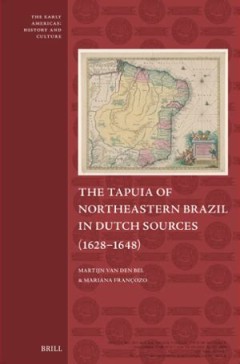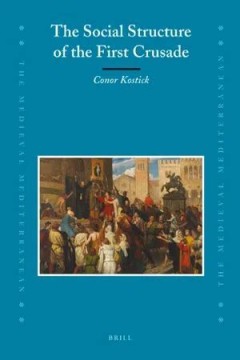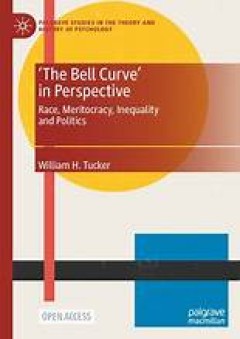Filter by

The Transformation of Economic Life under the Roman Empire = Proceedings of t…
Did a Roman imperial economy exist under the Late Republic, the Roman Principate and the Later Roman Empire? And if so, what type of economy was it? Another equally important question is: did the Roman Empire, by specific actions, the creation of infrastructures, or its very existence, trigger a transformation of economic life in the regions which it dominated? Or was the Empire a marginal affa…
- Edition
- -
- ISBN/ISSN
- 9789004401624
- Collation
- 288 hlm; ill., lamp.,
- Series Title
- Impact of Empire, Volume: 2
- Call Number
- -

The Texts and Contexts of Oxford, Bodleian Library, MS Laud Misc. 108 = The S…
The late thirteenth-century, monolingual Oxford manuscript, Bodleian Library, MS Laud Misc. 108, bears singular importance to medieval studies, for it preserves and anthologizes unique versions of several seminal Middle English texts, including South English Legendary, Havelok the Dane, and King Horn and Somer Soneday. While critics have traditionally classified these poems by genre, this book …
- Edition
- -
- ISBN/ISSN
- 9789004192249
- Collation
- 368 hlm; ill., lamp.,
- Series Title
- Medieval and Renaissance Authors and Texts, Volume: 6
- Call Number
- -

The Teaching and Learning of Arabic in Early Modern Europe
This volume brings together the leading experts in the history of European Oriental Studies. Their essays present a comprehensive history of the teaching and learning of Arabic in early modern Europe, covering a wide geographical area from southern to northern Europe and discussing the many ways and purposes for which the Arabic language was taught and studied by scholars, theologians, merchant…
- Edition
- -
- ISBN/ISSN
- 9789004338623
- Collation
- 366 hlm; ill., lamp.,
- Series Title
- The History of Oriental Studies, Volume: 3
- Call Number
- -

The Tapuia of Northeastern Brazil in Dutch Sources (1628–1648)
This book presents the transcriptions and annotated translations of fifteen key historical documents concerning the Tapuia indigenous people written just before and during the Dutch occupation of northeastern Brazil. The selected documents vary widely in type, including letters, descriptions, reports, first-person declarations, diaries, and transcripts of interrogations, thereby showcasing diff…
- Edition
- -
- ISBN/ISSN
- 9789004543645
- Collation
- 308 hlm; ill., lamp.,
- Series Title
- The Early Americas: History and Culture, Volume: 11
- Call Number
- -

The Spanish Monarchy and the Creation of the Viceroyalty of New Granada (1717…
Francisco A. Eissa-Barroso’s The Spanish Monarchy and the Creation of the Viceroyalty of New Granada (1717-1739) argues that the pace and character of the most salient Bourbon reform introduced in Spanish America in the early eighteenth century were determined by relations between New Granadan elites and authorities in Spain, reflected changes in European geopolitical configurations, and echo…
- Edition
- -
- ISBN/ISSN
- 9789004308794
- Collation
- 340 hlm; ill., lamp.,
- Series Title
- Early American History Series, Volume: 6
- Call Number
- -

The Social Structure of the First Crusade
The First Crusade (1096 – 1099) was an extraordinary undertaking. Because the repercussions of that expedition have rippled on down the centuries, there has been an enormous literature on the subject. Yet, unlike so many other areas of medieval history, until now the First Crusade has failed to attract the attention of historians interested in social dynamics. This book is the first to examin…
- Edition
- -
- ISBN/ISSN
- 9789047445029
- Collation
- 336 hlm; ill., lamp.,
- Series Title
- The Medieval Mediterranean, Volume: 76
- Call Number
- -

The Co-operative College and a Century of Social Change: Internationalism, Co…
This open access book explores the Co-operative College’s distinctive adult educational tradition over the past century as it provided education for co-operative leaders, employees and members in addition to developing a range of wider educational initiatives and ideas internationally. The Co-operative College is a British educational charity established in 1919, founded on co-operative princ…
- Edition
- -
- ISBN/ISSN
- 978-3-031-72976-8
- Collation
- -
- Series Title
- -
- Call Number
- -

Spinning the Cosmos: Volvelles in the Early Modern Commentary Tradition of Jo…
This open access book investigates the epistemological concept of and the knowledge transfer interwoven with the moveable paper wheels found in medieval and early modern books—the so-called “volvelles.” The earliest known volvelles emerged in the mid-thirteenth century and were cut out and installed by the reader, often appearing in books dealing with astronomical subjects. The brain proc…
- Edition
- -
- ISBN/ISSN
- 978-3-031-90976-4
- Collation
- VIII, 98
- Series Title
- -
- Call Number
- -

Bearing Witness
This open access book is the biography of one of Britain’s foremost animal welfare campaigners and of the world of activism, science, and politics she inhabited. In 1964, Ruth Harrison’s bestseller Animal Machines triggered a gear change in modern animal protection by popularising the term ‘factory farming’ alongside a new way of thinking about animal welfare. Here, historian Claas …
- Edition
- 1
- ISBN/ISSN
- 978-3-030-62792-8
- Collation
- oer.unej.ac.id
- Series Title
- Palgrave Studies in the History of Social Movements
- Call Number
- -

'The Bell Curve' in Perspective
This open access book examines the implications of The Bell Curve for the social, economic, and political developments of the early 21st century. Following a review of the reception of The Bell Curve and its place in the campaign to end affirmative action, Professor Tucker analyses Herrnstein’s concept of the “meritocracy” in relation to earlier 20th century eugenics and the dramatic incr…
- Edition
- 1
- ISBN/ISSN
- 978-3-031-41614-9
- Collation
- oer.unej.ac.id
- Series Title
- Palgrave Studies in the Theory and History of Psychology
- Call Number
- -
 Computer Science, Information & General Works
Computer Science, Information & General Works  Philosophy & Psychology
Philosophy & Psychology  Religion
Religion  Social Sciences
Social Sciences  Language
Language  Pure Science
Pure Science  Applied Sciences
Applied Sciences  Art & Recreation
Art & Recreation  Literature
Literature  History & Geography
History & Geography